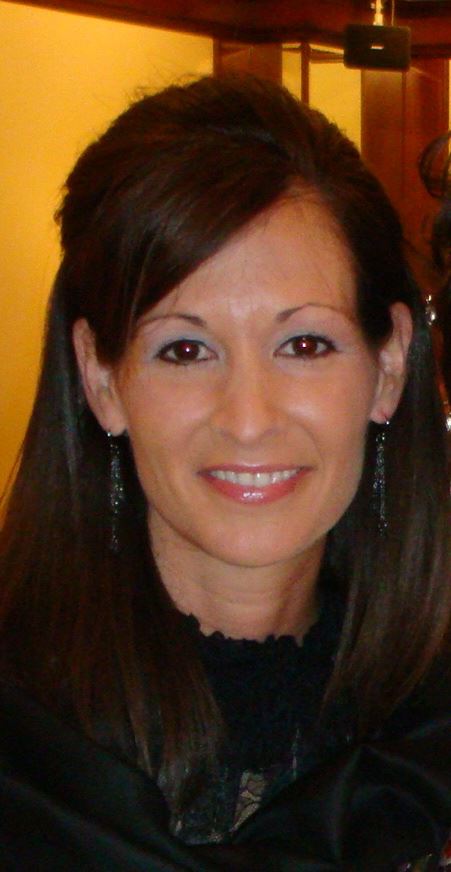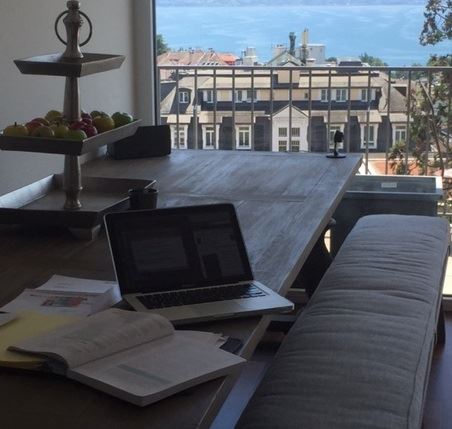 School name: Formerly Adlai E. Stevenson H.S. in Lincolnshire, IL. Moving to College Du Leman, Geneva Switzerland
School name: Formerly Adlai E. Stevenson H.S. in Lincolnshire, IL. Moving to College Du Leman, Geneva Switzerland
Type of school/School locale: Stevenson is large (4,000) student high school district in the northern suburbs of Chicago
College Du Leman is an international preK-12th grade school with about 400 students in the international section of the high school, on the outskirts of Geneva.
Classes you teach/ Average class size:: Stevenson: Constitutional Law and AP Psychology with an average class size of 28
College Du Leman: AP Psychology, IB Psychology with an average class size of about 12
What’s the best advice about teaching you’ve ever received?
Assume positive intent and work as a team. This has been of great help when in potentially frustrating situations, it has helped to proactively avoid misunderstandings and helps to create relationships that are more collaborative and understanding.
What book or article has shaped your work as a psychology teacher?
I just finished reading Whistling Vivaldi by Claude Steele about Stereotype threat, and in addition to being an interesting read regarding Social Psychology, there are many elements that can be incorporated quite easily into any classroom to reduce the impact that particular groups may feel regarding a deficit in their academic performance. This seems to useful for instructors to be aware of as all students should be able to learn in an environment in which they perform to the best of their ability without the expectations of others limiting them.
Briefly tell us about your favorite lecture topic or course to teach.
I enjoy Social Psychology, because students can clearly see the connections to their everyday lives. If they can carry this throughout the AP Psychology curriculum they will understand the information at a much deeper level and enjoy the course more than if they are simply trying to memorize facts and vocabulary. For this reason, I begin the course with the Social Psychology unit. I particularly enjoy discussing attribution, because one again we all make internal or external attributions everyday but even after one day of class students can better understand what mechanisms make us more or less likely to use dispositional or situational dispositions about our own or others behaviors. This is great example of a microcosm of the goals of psychology
Briefly describe a favorite assignment or in-class activity.
I love using the stroop effect and animal stroop effect to teach proactive interference. The room is loud and students are laughing and engaged and will remember the challenges they had with the task because of their prior learning.
What teaching and learning techniques work best for you?
I love the inquiry based learning technique, it relies on students coming to class prepared to discuss the material and building on their outside readings, but I also love learning as a story, if the story is engaging enough, students remember the stories and the concepts easily fit into this framework.
 What’s your workspace like?
What’s your workspace like?
I work best at home in a quiet space and generally choose to work in a room with as many windows as possible. At the moment this is my kitchen table overlooking Lake Geneva and the French Alps, it is tranquil and quiet and helps me to concentrate.
Three words that best describe your teaching style.
Interactive, clarifying and personable
What is your teaching philosophy in 8 words or fewer?
To help each student find their particular talents
Tell us about a teaching disaster (or embarrassment) you’ve had and how you dealt with the situation.
I was trying to do a quick demonstration with Weber’s law in the Sensation/Perception unit, I had taped some pennies into cups and students had to arrange them in order from the lowest to highest weights. I had to mix the cups up so that they were not already in the correct order and while mixing the cups I mentioned that I felt like I was at the circus (the guessing game of finding the peanut under the cup) and I began singing circus music and I asked the class if “anybody wanted some peanuts?” at least that what I intended to ask, what came out was not peanuts but something that sounds sort of like that, after the laughter subsided we discussed Freudian slips and perceptual sets.
What is something your students would be surprised to learn about you?
I love American History
What are you currently reading for pleasure?
David Bowie’s Biography by Paula Trynka
What tech tool could you not live without?
Haiku, a great learning management system that is easy to load information, easy for students to access and aesthetically pleasing.
What is your hallway chatter like? What do you talk to colleagues about most (whether or not it is related to teaching/school)?
At the moment, the upcoming presidential election and some recent SCOTUS decisions
